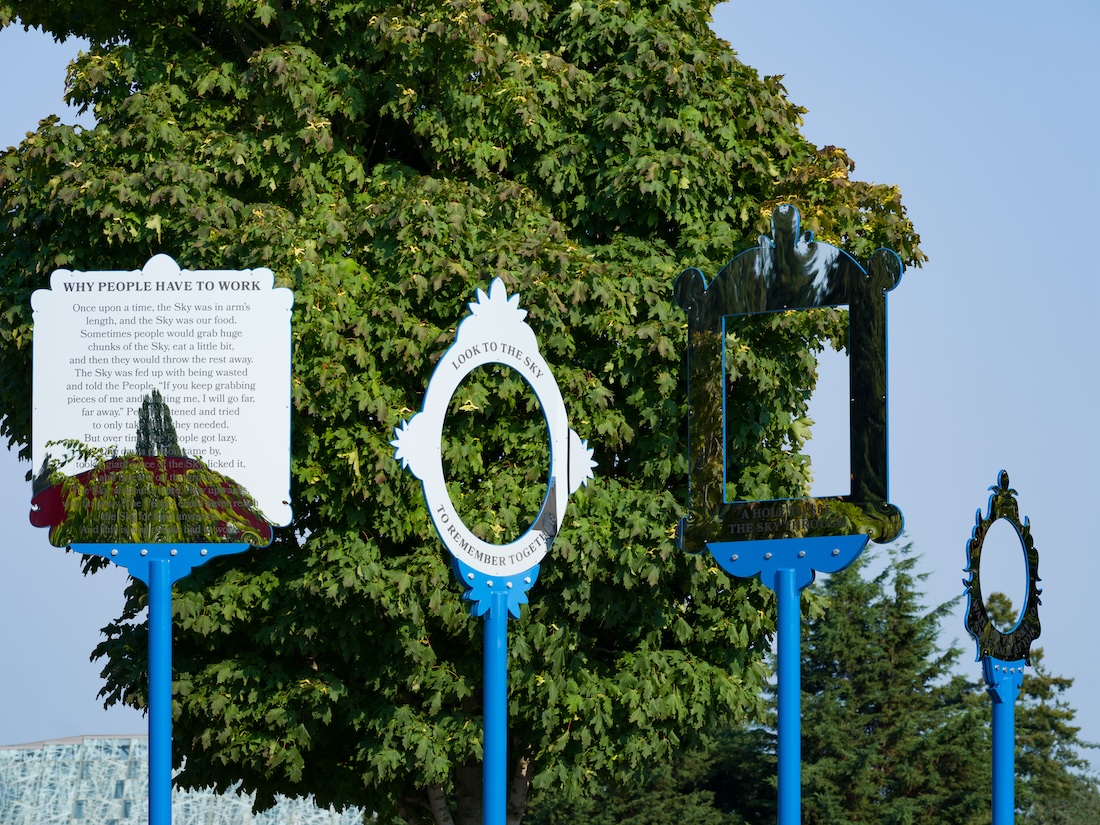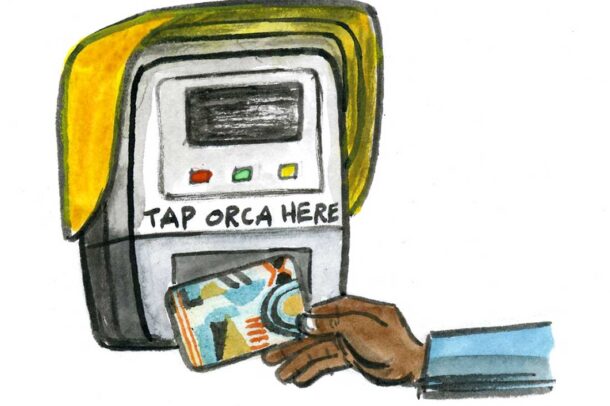Why We Have to Work
Elisheba Johnson and Kristen Ramirez
RapidRide
A folktale-inspired artwork connects people to the sky—and each other.

In the Nigerian folktale Why Men Have to Work, the sky is still within reach and people nourish themselves by eating pieces of it. People also waste the sky, though, and after some years, the sky threatens to move far, far away. At first, people respond by taking only what they need—until one day someone grabs a huge piece of the sky and throws it on the ground, sending the sky so high above the people, they can no longer touch it.
This story inspired artist team Elisheba Johnson and Kristen Ramirez—working as Johnson|Ramirez—to create Why We Have to Work, which uses mirrored steel to remind passersby of their own relationship to the sky and nature. They want the artwork “to spark people’s imagination about the power of environmentalism and how we all have a part in global health,” Johnson says. Permanently installed at King County Metro’s Burien Transit Center, the sculpture also references the area’s agricultural history and its evolution as a major link between Seattle and Tacoma.
Prior to devising this work, Johnson|Ramirez also created the art plan for Metro’s RapidRide expansion program, including six new lines (G–K). After submitting the plan in June 2020, they were commissioned to pursue one of the projects they had recommended. Why We Have to Work marks the terminus of the H Line route that runs through Delridge, White Center, and Burien. Ramirez passed away after she and Johnson had conducted engagement activities with the community and finalized the conceptual development for the piece; Johnson continued formalizing the details of its implementation, ultimately manifesting a poignant way to remember and honor her dear friend and collaborator.
“Our art practice was iterative, and we would often text ideas throughout the day and night to each other,” Johnson says. “After landing on the concept for Why We Have to Work, Kristen sent me a photo of clouds that read, ‘The sky is ours, just saying.’ This artwork is not only our gift to the Burien community, but a physical representation of our collective practice and shared love for each other. The sky belongs to all.”
Ramirez (1971–2021) was a Seattle-based printmaker, painter, and public artist who made work about place and our everyday experiences. Her other 4Culture commissions include Ebb & Flow on the Burke-Gilman Trail. Johnson is an artist, curator, and co-founder of Wa Na Wari, a Black arts space in Seattle’s Central District.
About the Location
RapidRide
Read more about the art and artists at RapidRide. More >

